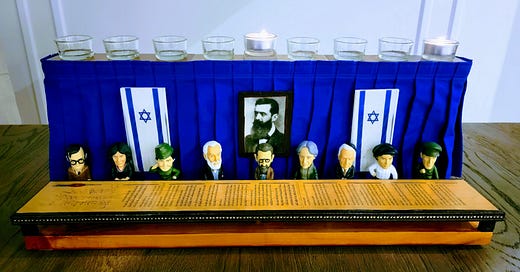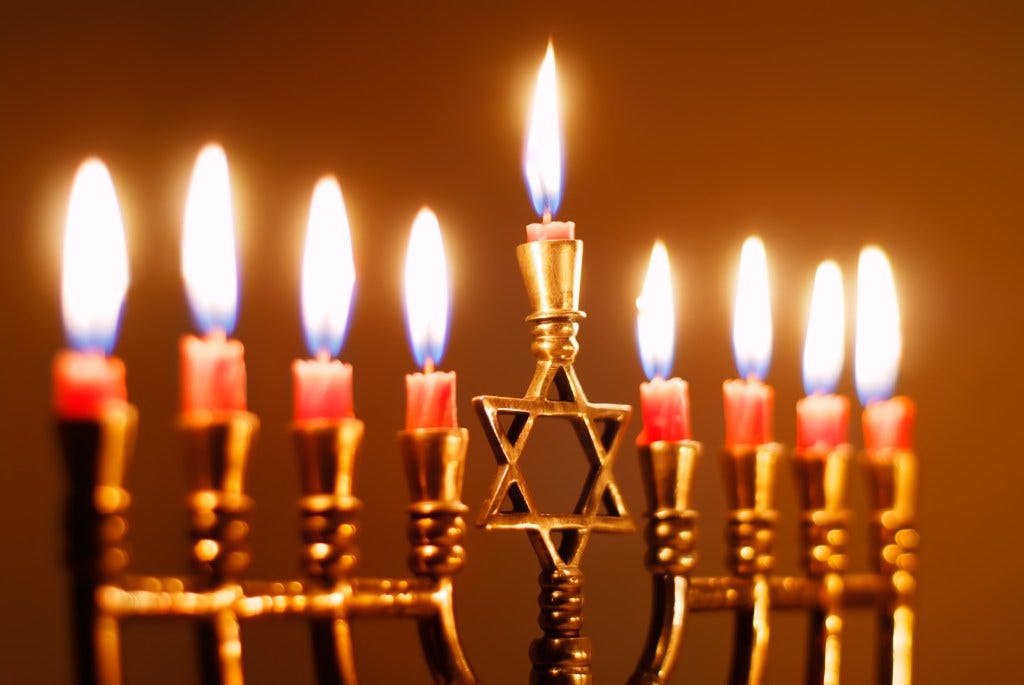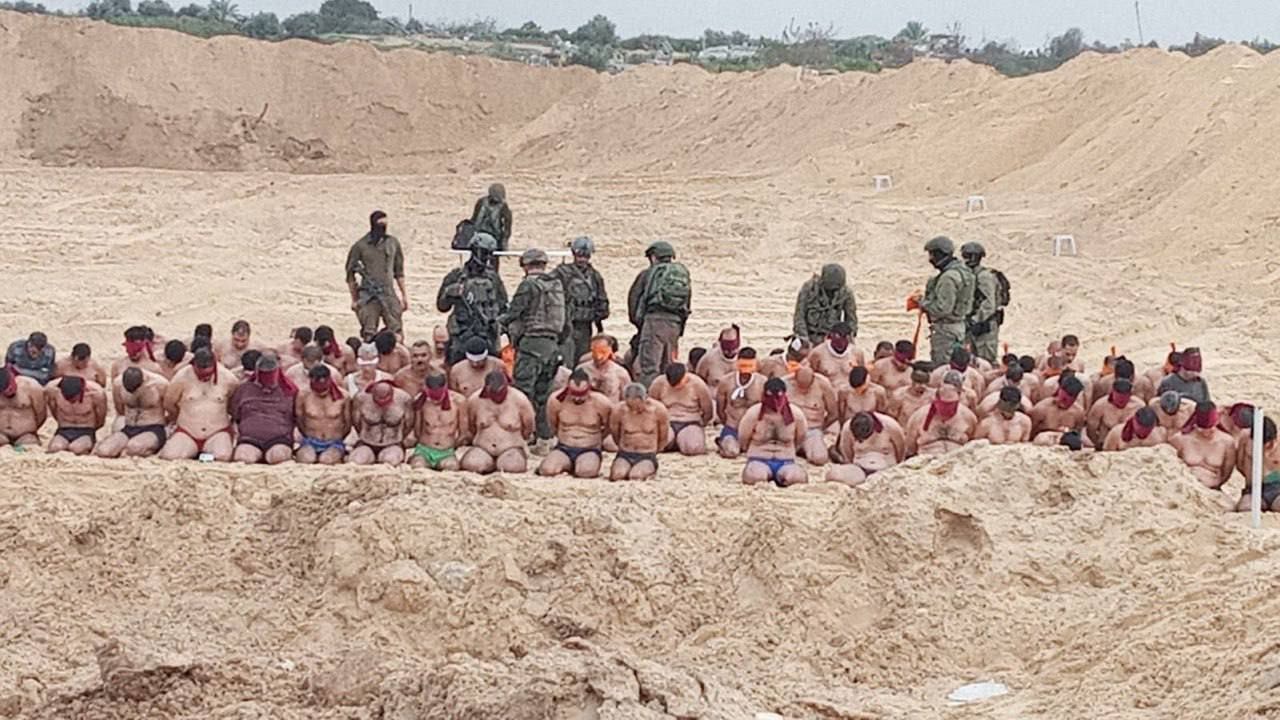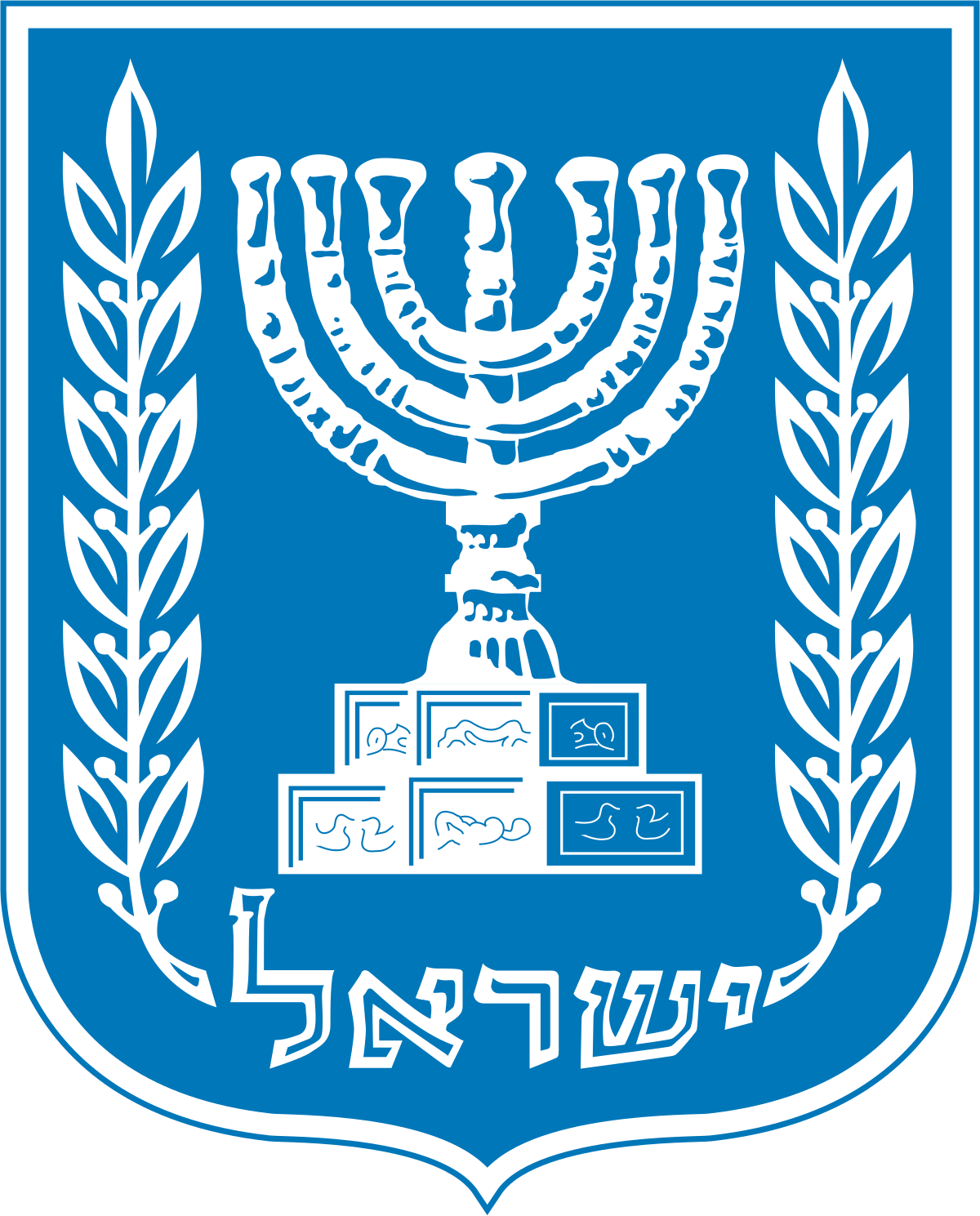Tonight, Jewish communities around the world begin to celebrate Chanukah. It is a joyous holiday where, once again, we celebrate the avoidance of our potential destruction as a people, and eat oily foods to commemorate that victory.
Delicious, but oily.
The story of Chanukah, for those unfamiliar, is as follows: The Seleucid Greek King, Antiochus IV Epiphanes, ruled over Jerusalem in about 170BCE. Though he initially showed respect for the Jews, his reign eventually led to his trying to Hellenize them (i.e. make them more Greek), barring them from performing circumcisions, learning the Torah, or practicing their faith in their Temple. Though he did not destroy the Temple (the 2nd destruction would not happen for another 230 years), he did desecrate it. His soldiers sacked the Temple and spilled out the oil used to light the sacred Menorah, a sign of Jewish eternity from the days of the Exodus.
A small family of Hasmoneans - the Maccabees - fought back against the Seleucids to defend their people. Their three year struggle was successful, and their leader, Judah, ultimately ordered the cleaning and restoration of the Temple. A new altar was restored and dedicated on the 25th day of Kislev 164BCE.
According to tradition, when Judah sought the oil needed to rekindle the Menorah, he only found one jug not defiled by the Greeks. Yet, the oil miraculously burned for eight days, until new oil could be found, thus igniting (literally) the custom of lighting eight candles for eight days.
So, tonight we celebrate two miracles: the victory of the Maccabees over the Greeks, and the miracle of a small amount of oil lasting eight days.
A miracle today?
Now, not to be too crass, but the miracle 2,187 years ago was that the Jews found some oil that lasted longer than expected. Big whoop. But, at a time when the Temple stood, and the worship of God with specific implements was the centre of Jewish life, it makes sense that such an accomplishment was a miracle. This does, however, make me think: what would be considered a miracle today?
I think about this from a few different perspectives.
Many of our holidays are premised on the occurrence of a miracle. Passover has lots, with God smiting Pharaoh and the Egyptian people with 10 plagues, and bringing us out of Egypt by splitting the Red Sea in two. Chanukah, see above. On Sukkot, we celebrate the miracle of God protecting us in the desert, by creating a cloud barrier above us, to keep us safe. During Purim, we celebrate the miracle that a seemingly natural occurence (drunk King banishes wife, marries a Jewess, plot to kill Jews is discovered by said-Jewess’s cousin, Jewess tells her husband - said drunk King - to stop the plot, plot stopped, Haman and sons killed, Jews win) led to the survival of Persia’s Jewish community.
Even some of our more modern holidays, though not strictly Jewish per se, are premised on miracles. On Yom Haatzmaut, we celebrate the victory of the nascent Jewish State over seven invading, and much larger, Arab armies. Though it is not a holiday, but absolutely should be, any observance of the Six Day War notes that Israel miraculously won a war in six short days, against all odds.
As Israel’s first Prime Minister, David Ben Gurion, once said: In Israel, in order to be a realist, you must believe in miracles.
The 10/7 Holiday
I very much believe that in the future, the events of 10/7 will be celebrated as a holiday as well. We will celebrate a victory. Though uncertain what oily food will be eaten on that holiday (Rachel’s cookies, perhaps?), I wonder, in the context of our celebration, what miracle we will mark.
Will it be that 110 hostages taken by Hamas were returned to their families?
Will it be that today, on the eve of Chanukah, hundreds of Palestinian terrorists surrendered to IDF forces, possibly (though we have no way of knowing yet) marking a turning point in the war?
Will it be that Israel floods the Gaza tunnels with sea water, and that the water spares the remaining Jewish hostages, and ends the lives of those terrorists cowering in fear beside them? We can only hope.
IDF reservist and counter-terrorism expert, Yair Ansbacher, believes that three miracles happened on 10/7, that had they not occurred, the attack would have been far worse:
The Iranian plan of attack was not implemented properly, as Hezbollah did not enter the war that day (and yet);
That the infiltrators were not as disciplined as they could have been, and that they were quickly disrupted from carrying out the scope of the massacre they initially intended; and
That in 75 years, the State of Israel turned its inhabitants into a nation of warriors, who fought back in any way possible.
Whether related to Israel’s ground war specifically, or the war that has spread to the Diaspora more broadly, I have been wondering what it would be that would make us stop in our tracks, look to the heavens, and thank God for the miracle that he has provided.
Would it have been miraculous for a president of Harvard, Penn State, or MIT, to say yesterday that yes, threatening the genocide of Jews is is against their school’s code of conduct?
Would it be a miracle for international women’s groups to broadly condemn rape and sexual violence against Israeli women?
Would it be miraculous for the UN to hold a day of mourning for the victims of 10/7, and pass a resolution condemning Hamas?
What about if the brief honeymoon of sympathy that we experienced in the week following 10/7 continued, unabated, while Israel fights this most just war against a terror group more brutal than the Taliban or ISIS?
Was it a miracle that during the rally in support of Israel on Parliament Hill this week, Stars of David fell from the heavens?
If one of those things had happened, then dayeinu - it would have been enough (sorry for mixing holiday messages). These may be small things, but certainly, in the current climate, any one of those things could be considered a miracle in its own right.
The third miracle of Chanukah
The late, great, Rabbi Jonathan Sacks wrote that there was actually a third Chanukah miracle too: that we continued to celebrate it.
After the 2nd Temple was destroyed in 70 CE, there was a dispute amongst the rabbis at the time as to whether Chanukah should still be celebrated. The question was: why celebrate a holiday about the restoration of a Temple which no longer exists? The Jewish community in Lod at the time actually stopped celebrating Chanukah for that exact reason.
Though the community in Lod actually stopped celebrating, the consensus, eventually, was that we should continue to celebrate Chanukah. Why? Because although the Temple was destroyed, Jewish hope was not. Even though the building was gone, we still had the story, the memory, and the light. We needed reminding that what happened once before could always happen again. Not only bad things, but the idea that we could maybe once again, one day, have a new Temple, or sovereignty over our land. There was never anything wrong with memorializing a victory, from which we draw strength.
It would not have been unreasonable for the Jewish people to have lost hope many years ago. We had plenty of opportunities and reasons to. But hope has kept us moving forward, pushed along by the miraculous acts that we have both felt and witnessed, encouraging us along the way.
If you needed reminding: Chanukah is a story about a miracle, and it is also a Zionist holiday. It commemorates the re-establishment of Jewish sovereignty in the Land of Israel, which has been done on several occasions, most recently in 1948. It is the reason the Menorah is on the emblem of the State of Israel, and Hatikvah, Israel’s national anthem, includes the words “od loh avda tikvatenu” - we have not yet lost our hope.
This Chanukah, remember that miracles can and do happen, and that though the bad news is often all consuming, we must remember that one simple candle can pierce through the darkness as it reaches up to the sky, reminding us that anything is possible for our small but dedicated group of people.
Chag sameach.








